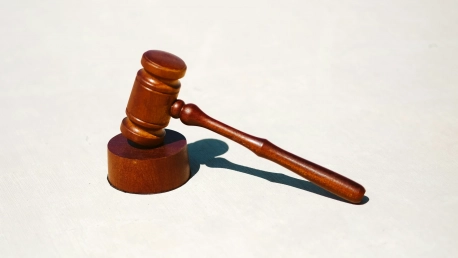In a decision that reverberated through legal and political circles, the U.S. Supreme Court weighed in on a dispute with the futures of regulatory processes and First Amendment rights hanging in the balance. This consequential ruling emerged from the high-stakes contention between the National Rifle Association (NRA) and Maria Vullo, the former New York Superintendent of Financial Services. The NRA took umbrage at what they perceived to be an encroachment upon their rights to free speech as Vullo exhorted insurers to reevaluate their ties with gun advocacy groups in the wake of the Parkland, Florida tragedy. This ruling pivots on crucial considerations regarding how far regulatory entities can go before their actions are deemed an infringement on constitutional freedoms.
The Supreme Court’s Unanimous Decision
On May 30, 2024, the United States Supreme Court, through a decision penned by Justice Sonia Sotomayor, announced a turning point in the contentious battle. The Court, via unanimous opinion, held that the Second Circuit had prematurely granted Vullo qualified immunity without thoroughly examining the NRA’s claims. Such an oversight necessitated a reassessment revealing that, indeed, if Vullo wielded her regulatory might as indicated, it would constitute a First Amendment violation—a decision that squarely underlined the high court’s attunement to free speech concerns, even as they intersected with the nuances of regulatory oversight.What stood out in the ruling was the narrow scope it carved, ensuring that the case did not broadly undermine the powers held by regulatory figures. Instead, it provided a calibrated approach that assuaged former regulators’ and prosecutors’ anxieties that their nonbinding advisories on reputational risks might lose legal standing. This nuance in judgment showcased the Supreme Court’s commitment to uphold the regulators’ ability to counsel on compliance-related risks without infringing on protected speech rights.
Regulatory Powers and the First Amendment
Navigating this judicial tightrope implies that regulators must conduct themselves with enhanced care, steering clear of targeting individuals over political affiliations. Neal Katyal, representing Vullo, stood his ground, arguing that the actions in question were aligned with standard law enforcement protocols against insurance law infringements. In stark contrast, David Cole, representing the NRA, interpreted the ruling as an affirmation that regulatory powers should not be used to ostracize politically discordant groups.This case dissects the essence of what constitutes coercive versus persuasive regulatory dialogue. The judgment pivots on the difference, as simplified by Suffolk Law School’s Kathleen Engel, that regulators are constitutionally permitted to persuade but overstep their bounds by attempting to coerce. Consequently, the Supreme Court has sent a message echoing through the corridors of power: Regulators can signal issues, but their means of communication should not trample upon constitutional safeguards.
Implications for Regulatory Practice and Advocacy Groups
The U.S. Supreme Court’s landmark ruling sent shockwaves through the legal and political realms, taking a strong stand in a highly contentious debate that casts long shadows on the future of regulatory oversight and the scope of the First Amendment. At the heart of this pivotal decision was a clash involving the National Rifle Association (NRA) and the former New York Superintendent of Financial Services, Maria Vullo. The dispute arose when Vullo urged insurers to reassess their ties with gun rights organizations following the Parkland tragedy, an action the NRA contended was an infringement on their free speech. This significant judgment will now set a benchmark for determining the extent to which regulatory authority encroaches on the foundational constitutional rights vested in American citizens.









